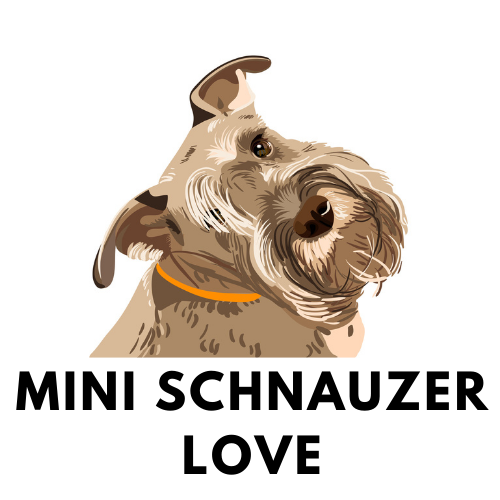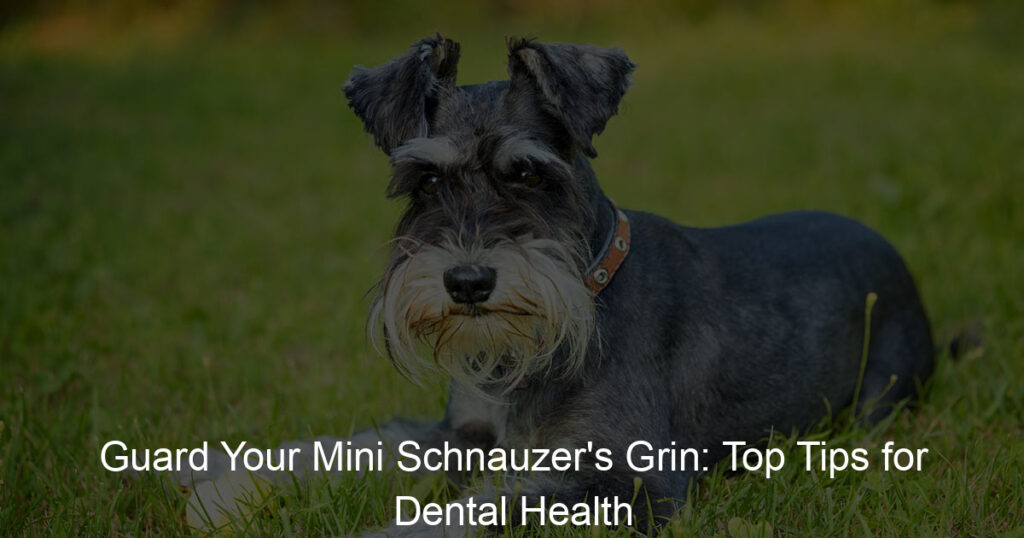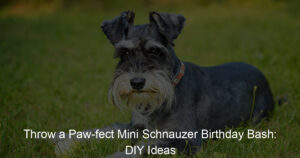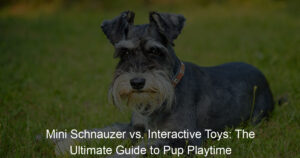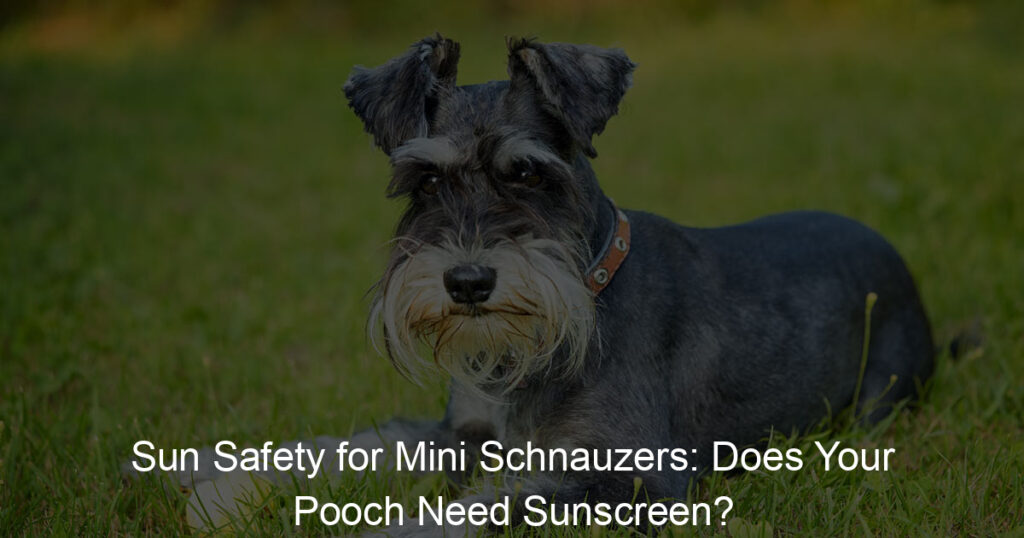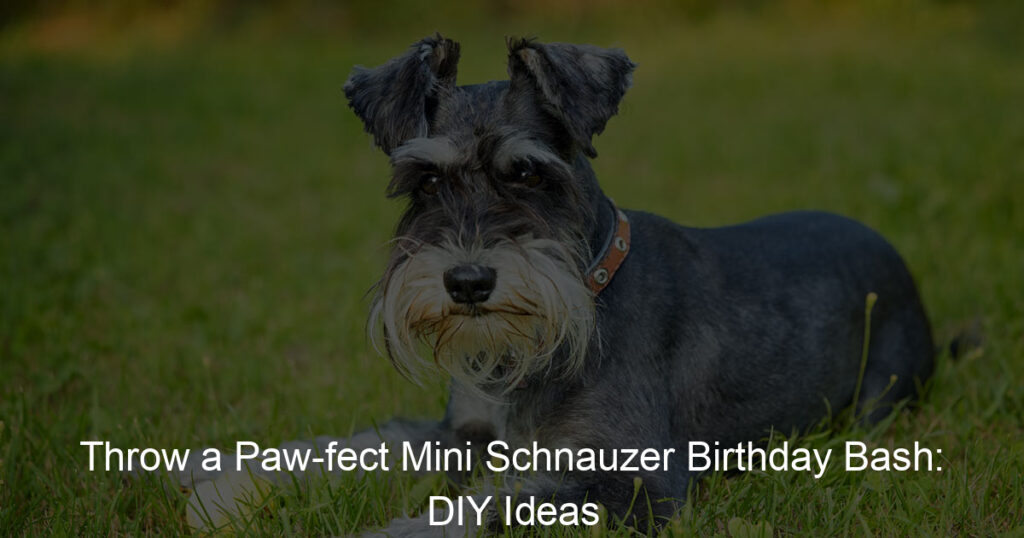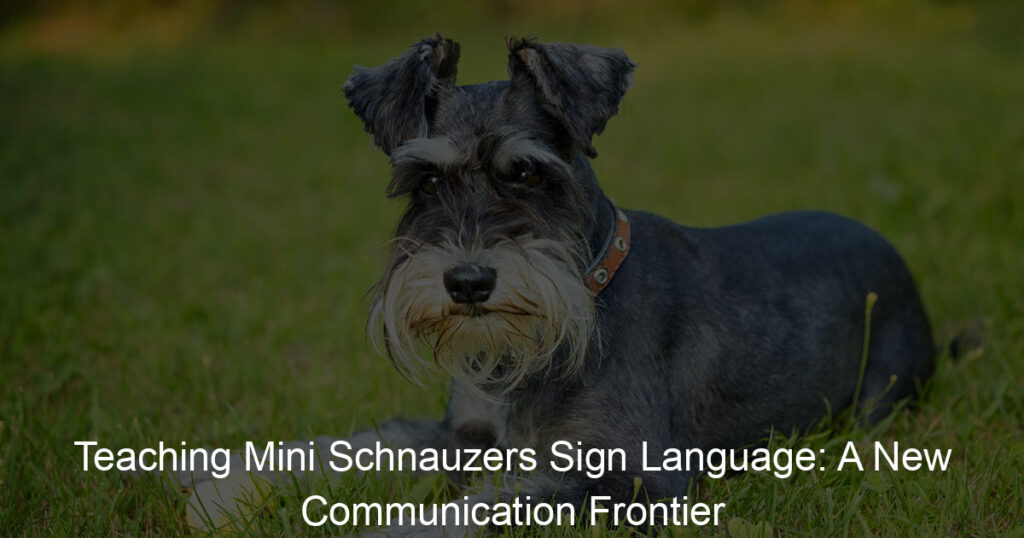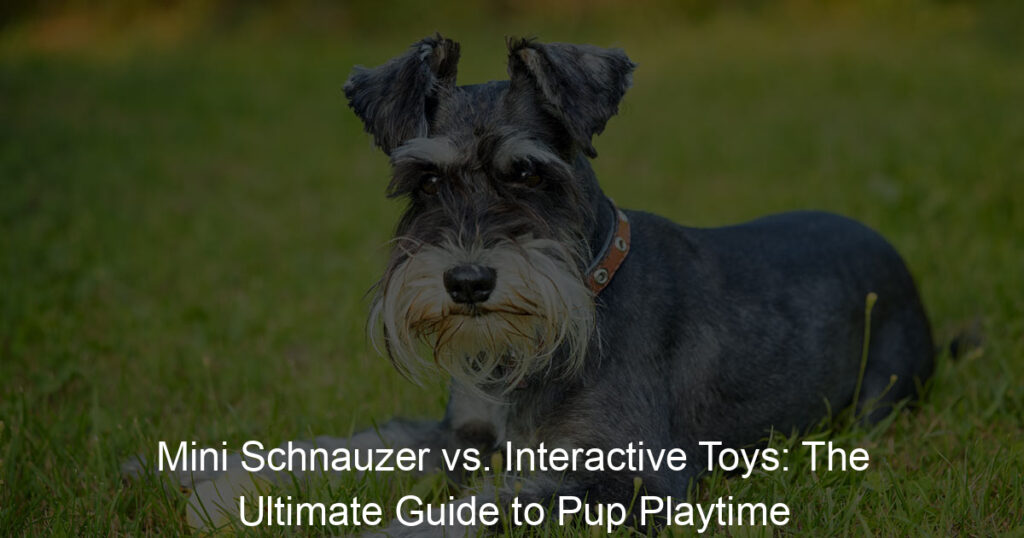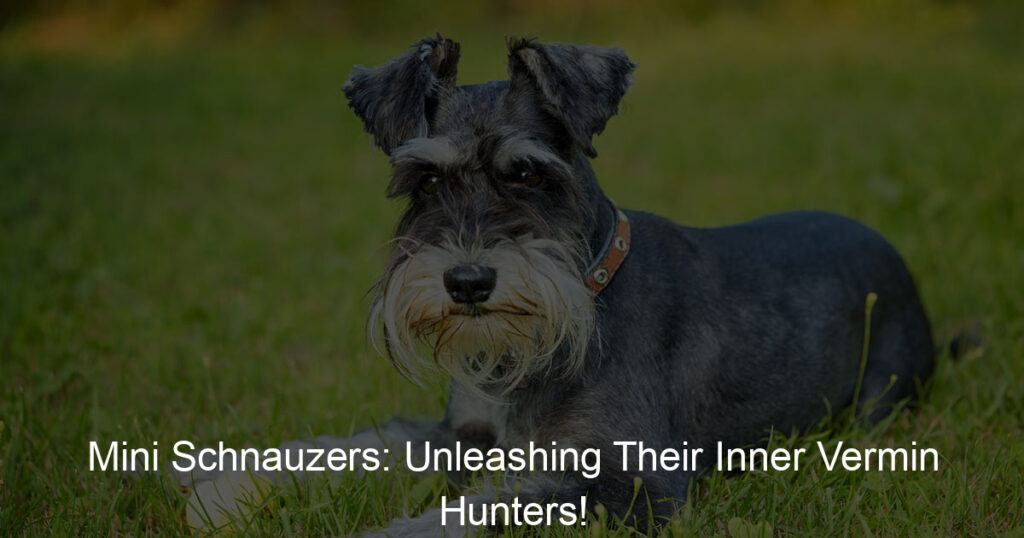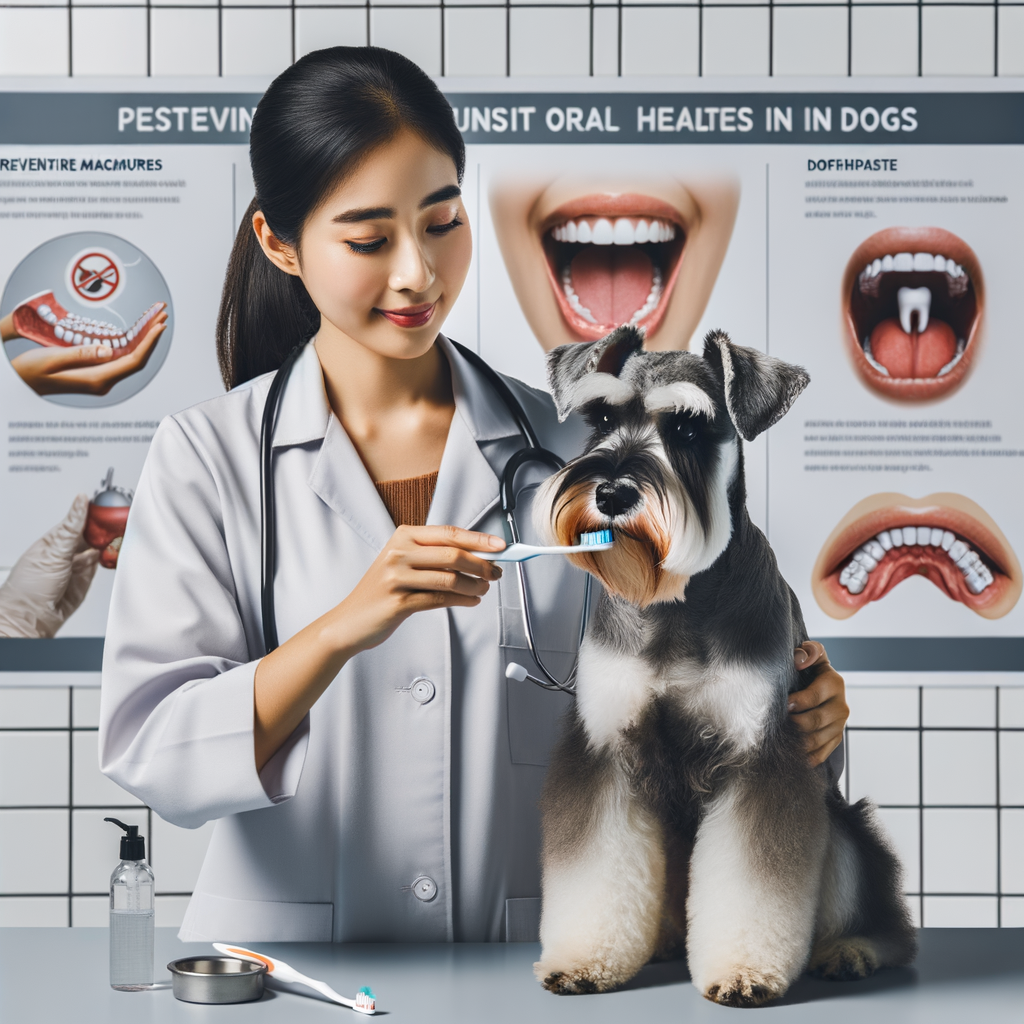
Introduction to Mini Schnauzers Dental Care
Just like humans, Mini Schnauzers need proper dental care to maintain their overall health. This article will guide you through the importance of oral health in Mini Schnauzers, and the common dental problems they may face.
- Importance of oral health in Mini Schnauzers
- Common dental problems in Mini Schnauzers
- Periodontal Disease: This is a common dental issue in Mini Schnauzers. It starts with the buildup of plaque, which hardens into tartar if not removed. This can lead to gum inflammation and eventually, tooth loss.
- Tooth Decay: Just like in humans, Mini Schnauzers can also suffer from cavities due to poor dental hygiene.
- Broken Teeth: Mini Schnauzers are known for their love of chewing, which can sometimes result in broken or fractured teeth.
Oral health is a crucial aspect of a Mini Schnauzer’s overall well-being. Poor dental hygiene can lead to a variety of health problems, including bad breath, tooth decay, and gum disease. In severe cases, it can even result in life-threatening conditions such as heart, liver, and kidney diseases. Therefore, maintaining your Mini Schnauzer’s oral health is not just about keeping their teeth clean, but also about ensuring their overall health and longevity.
Mini Schnauzers, like other breeds, are prone to certain dental problems. These include:
Understanding these common dental problems can help you take preventative measures to ensure your Mini Schnauzer’s oral health.
Understanding Oral Health in Mini Schnauzers
Oral health is a crucial aspect of your Mini Schnauzer’s overall well-being. By understanding their oral anatomy and common oral health issues, you can ensure your furry friend maintains a healthy and happy smile.
Oral Anatomy of Mini Schnauzers
Let’s delve into the oral anatomy of Mini Schnauzers to better understand their dental health.
- Teeth structure and function
- Common oral health issues
- Periodontal Disease: This is an infection of the tissues surrounding the teeth. It’s the most common dental issue in dogs, affecting over 80% of dogs over the age of three.
- Dental Plaque and Tartar: These are deposits that build up on the teeth over time, leading to gum disease and tooth decay if not removed.
- Tooth Loss: This can occur due to trauma or severe periodontal disease.
Mini Schnauzers, like other dogs, have two sets of teeth in their lifetime. They start with 28 deciduous (baby) teeth, which are replaced by 42 permanent (adult) teeth by the time they’re six months old. These teeth are designed to tear and chew food. The incisors at the front are for nibbling and grooming, the canines for tearing, and the premolars and molars for grinding food.
Despite their robust teeth structure, Mini Schnauzers are prone to certain oral health issues. The most common ones include:
Understanding the oral anatomy and common health issues of Mini Schnauzers is the first step towards ensuring their oral health. Regular dental check-ups, a balanced diet, and good oral hygiene can help prevent these issues and keep your Mini Schnauzer’s smile bright and healthy.
Signs of Dental Problems in Mini Schnauzers
Just like humans, Mini Schnauzers can also experience dental problems. It’s important to recognize the signs early to prevent further complications. Here are some common signs of dental issues in Mini Schnauzers:
- Bad breath: While it’s normal for dogs to have a slightly different breath, excessively foul-smelling breath could be a sign of dental problems. This could be due to bacteria build-up in the mouth, which can lead to gum disease and tooth decay.
- Difficulty eating: If your Mini Schnauzer is having difficulty eating or is showing less interest in food, it could be due to oral discomfort. Dental problems can make chewing painful, leading to changes in eating habits.
- Visible plaque or tartar: Plaque and tartar build-up on your Mini Schnauzer’s teeth can lead to serious dental issues. Plaque is a sticky, colorless film of bacteria, while tartar is a hard, yellowish deposit. If you notice either on your dog’s teeth, it’s time to visit the vet.
Remember, early detection of these signs can help prevent serious dental problems in your Mini Schnauzer. Regular check-ups and good oral hygiene practices can keep your furry friend’s teeth healthy and strong.
Preventing Dental Issues in Dogs
As a responsible pet owner, it’s essential to understand how to prevent dental issues in your dog. This not only ensures their comfort but also contributes to their overall health. Here, we will discuss the best practices for maintaining your dog’s oral health.
Best Practices for Dog Oral Health
There are several steps you can take to ensure your dog’s mouth stays healthy. Let’s explore some of the most effective methods.
-
Regular brushing:
Just like humans, dogs benefit greatly from regular tooth brushing. This helps to remove plaque and prevent the buildup of tartar. Ideally, you should brush your dog’s teeth daily. However, even brushing a few times a week can make a significant difference. Use a toothbrush designed for dogs and pet-safe toothpaste.
-
Professional dental cleanings:
Professional dental cleanings by a vet are an excellent way to maintain your dog’s oral health. These cleanings allow for a thorough examination of your dog’s mouth and the removal of any tartar build-up. It’s recommended to have your dog’s teeth professionally cleaned at least once a year.
-
Dental-friendly dog food:
Did you know that the type of food you feed your dog can affect their oral health? Certain dog foods are designed to help clean your dog’s teeth as they eat. These foods often have a special texture that helps to scrape off plaque. Ask your vet for recommendations on dental-friendly dog food.
By following these best practices, you can help prevent dental issues in your dog and ensure they have a healthy, happy smile.
Importance of Regular Vet Check-ups
Regular vet check-ups are an essential part of maintaining your Mini Schnauzer’s dental health. These visits not only ensure your pet’s overall well-being but also play a crucial role in preventing dental issues. Let’s delve into the reasons why these check-ups are so important.
- Early detection of dental issues
- Professional advice on dental care
One of the main benefits of regular vet visits is the early detection of dental problems. Just like humans, dogs can suffer from a variety of dental issues, from gum disease to tooth decay. Regular check-ups allow the vet to spot these problems early, before they become serious. According to the American Veterinary Medical Association, 80% of dogs show signs of oral disease by age 3, making early detection key to preventing long-term damage.
Another advantage of regular vet visits is the opportunity to receive professional advice on dental care. Your vet can provide tailored recommendations for your Mini Schnauzer’s oral health, such as the best dental-friendly dog food, how often to brush their teeth, and whether they might benefit from professional dental cleanings. This advice is invaluable in keeping your pet’s teeth and gums healthy.
In conclusion, regular vet check-ups are a cornerstone of preventive dental care for your Mini Schnauzer. They enable early detection of dental issues and provide an opportunity to receive professional advice on maintaining your pet’s oral health. So, make sure to schedule regular vet visits to keep your Mini Schnauzer’s grin bright and healthy.
Maintaining Mini Schnauzers Oral Health
Keeping your Mini Schnauzer’s teeth healthy is a vital part of their overall well-being. A good dental care routine can prevent many common oral health problems. Let’s delve into the daily dental care practices that can help maintain your Mini Schnauzer’s oral health.
Daily Dental Care for Mini Schnauzers
Everyday dental care for your Mini Schnauzer involves two key steps: proper brushing techniques and choosing the right dental products. Let’s explore each of these steps in detail.
- Proper brushing techniques
- Choosing the right dental products
Brushing your Mini Schnauzer’s teeth daily is crucial. Start by lifting their lips to expose their teeth and gums. Use a dog toothbrush and gently brush in a circular motion, focusing on the gum line. Remember to brush the back molars, as these are often the most neglected. Make sure to praise your Mini Schnauzer throughout the process to make it a positive experience for them.
When it comes to dental products, always choose those specifically designed for dogs. Human toothpaste can be harmful to your Mini Schnauzer. Look for dog toothpaste with enzymes that help break down plaque and tartar. A dog toothbrush should have soft bristles and fit comfortably in your dog’s mouth. Dental chews can also be a great addition to your Mini Schnauzer’s dental care routine. They not only help clean teeth but also keep your dog entertained.
By incorporating these daily dental care practices, you can help ensure your Mini Schnauzer has a healthy and happy smile. Remember, good oral health contributes significantly to your dog’s overall well-being.
Long-term Dental Care Strategies
Keeping your Mini Schnauzer’s teeth healthy is a long-term commitment. It involves more than just daily brushing. Here are two key strategies to ensure your furry friend’s dental health stays in top shape for years to come.
- Regular Professional Cleanings
- Dental-Friendly Diet
Just like humans, dogs need regular professional dental cleanings. These cleanings are typically done by a veterinarian and can help prevent serious dental issues. They involve a thorough cleaning of your Mini Schnauzer’s teeth, both above and below the gum line. This helps to remove plaque and tartar build-up that brushing alone can’t reach.
According to the American Veterinary Dental College, most dogs should have a professional dental cleaning at least once a year. However, Mini Schnauzers, due to their breed-specific oral health issues, may require more frequent cleanings. Always consult with your vet to determine the best schedule for your pet.
What your Mini Schnauzer eats can have a big impact on their dental health. A dental-friendly diet is one that helps to keep your dog’s teeth clean and healthy. This typically includes high-quality, dry dog food, which can help to scrape plaque off your dog’s teeth. Additionally, dental chews and treats can also help to clean teeth and freshen breath.
However, a dental-friendly diet isn’t just about what your dog eats, but also about what they shouldn’t eat. Avoid giving your Mini Schnauzer sugary treats and human food, as these can lead to tooth decay and other dental issues.
In conclusion, maintaining your Mini Schnauzer’s oral health is a long-term commitment that requires regular professional cleanings and a dental-friendly diet. By following these strategies, you can help ensure your furry friend’s smile stays bright and healthy for years to come.
Dealing with Dental Problems in Mini Schnauzers
Just like humans, Mini Schnauzers can suffer from a variety of dental problems. It’s crucial for pet owners to be aware of these issues and know how to handle them. Let’s take a closer look at some of the most common dental problems that Mini Schnauzers face and how they can be treated.
Common Dental Issues and Treatments
Mini Schnauzers, due to their small size and unique jaw structure, are prone to certain dental issues. Here are two of the most common problems and their respective treatments:
- Gingivitis and Periodontal Disease
- Tooth Decay and Cavities
Gingivitis is inflammation of the gums caused by the buildup of plaque. If left untreated, it can progress to periodontal disease, a serious condition that can lead to tooth loss. Regular brushing and professional dental cleanings can help prevent these diseases. In severe cases, your vet may recommend special dental diets, oral rinses, or even surgery.
Just like in humans, tooth decay in dogs occurs when bacteria in the mouth form plaque that sticks to the teeth. Over time, this plaque can lead to cavities. Regular brushing with dog-safe toothpaste can help prevent tooth decay. If your Mini Schnauzer already has a cavity, your vet may need to perform a dental filling or extraction.
Remember, prevention is always better than cure. Regular dental check-ups and a good oral hygiene routine can go a long way in ensuring your Mini Schnauzer’s dental health. If you notice any signs of dental problems, such as bad breath, difficulty eating, or changes in behavior, it’s important to seek veterinary care as soon as possible.
When to Seek Professional Help
Just like humans, Mini Schnauzers can experience dental problems that require professional attention. It’s important to recognize the signs that your dog needs to see a vet and to know what to expect during the visit.
- Signs your dog needs a vet
- Bad breath that doesn’t go away
- Difficulty eating or loss of appetite
- Red, swollen, or bleeding gums
- Loose or missing teeth
- Excessive drooling
- Pawing at the mouth
- What to expect at the vet
- A visual inspection of your dog’s mouth and teeth
- X-rays to check for any hidden issues
- A professional cleaning to remove plaque and tartar
- Possible extraction of damaged teeth
Several signs might indicate that your Mini Schnauzer needs professional help for dental issues. These include:
If you notice any of these signs, it’s time to schedule a visit with the vet. Remember, early detection and treatment can prevent more serious problems down the line.
At the vet, your Mini Schnauzer will undergo a thorough dental examination. This might include:
The vet may also provide you with advice on how to maintain your dog’s oral health at home. This could involve recommendations for specific dental care products or dietary changes.
In conclusion, it’s essential to keep a close eye on your Mini Schnauzer’s dental health. If you notice any signs of trouble, don’t hesitate to seek professional help. With proper care and attention, you can help ensure your furry friend maintains a healthy, happy grin.
Conclusion: Guarding Your Mini Schnauzer’s Grin
As we wrap up our discussion on Mini Schnauzer’s dental care, it’s essential to remember that a healthy mouth contributes significantly to your pet’s overall well-being. Let’s revisit some of the best practices and understand why maintaining good oral health is crucial.
- Recap of best practices for dental care
- The importance of maintaining good oral health
Firstly, regular brushing is the cornerstone of dental care. Aim to brush your Mini Schnauzer’s teeth at least two to three times a week. Secondly, provide them with dental chews and toys that promote oral health. These not only keep your pet entertained but also help in reducing plaque and tartar buildup.
Regular vet check-ups are also essential. Your vet can spot early signs of dental issues and provide treatment before they escalate. Lastly, a balanced diet plays a significant role in maintaining your pet’s dental health. Foods rich in vitamins and minerals, particularly calcium, contribute to strong teeth and gums.
Good oral health is not just about a bright smile. It’s about ensuring your Mini Schnauzer’s overall health and happiness. Poor dental health can lead to painful conditions like gum disease and tooth loss. Worse still, bacteria from the mouth can enter the bloodstream and affect other organs such as the heart and kidneys.
By maintaining your Mini Schnauzer’s oral health, you’re not just guarding their grin but also protecting them from potential health risks. It’s an investment in their longevity and quality of life.
In conclusion, your Mini Schnauzer’s dental health is in your hands. With the right care and attention, you can ensure they keep flashing that adorable grin for many years to come. Remember, a healthy pet is a happy pet!
